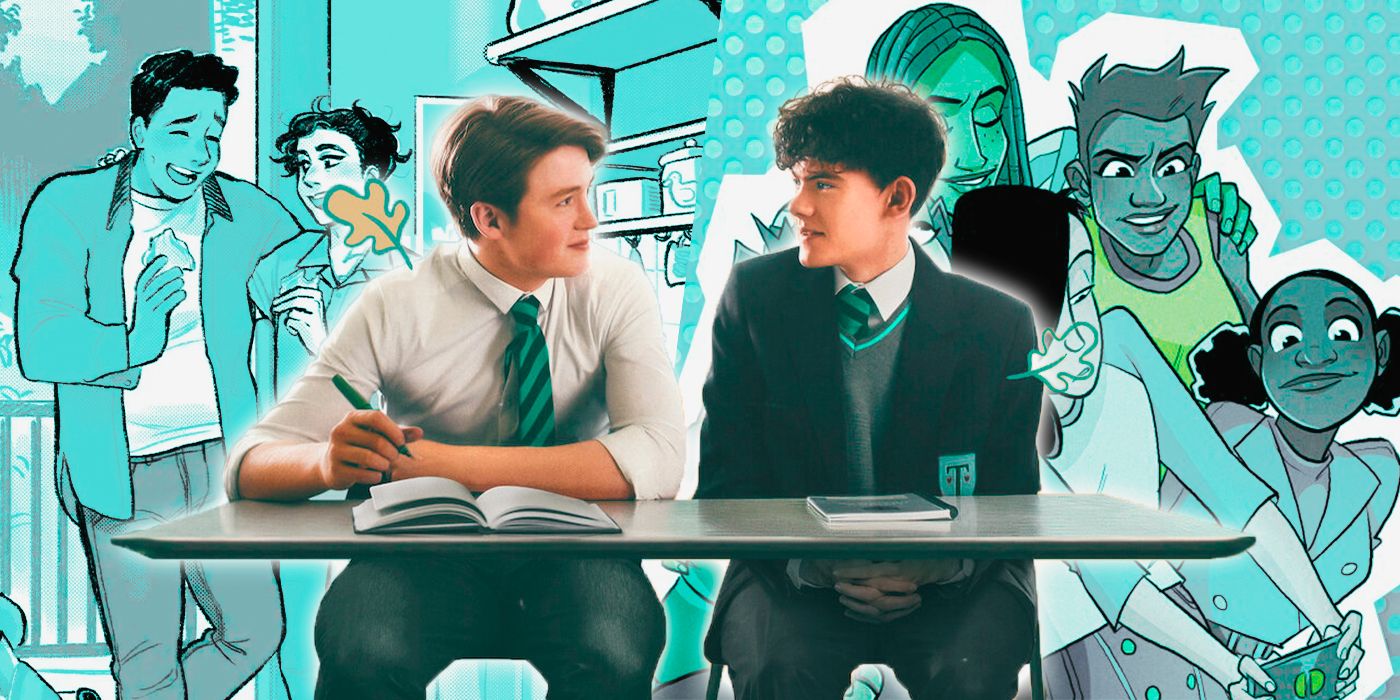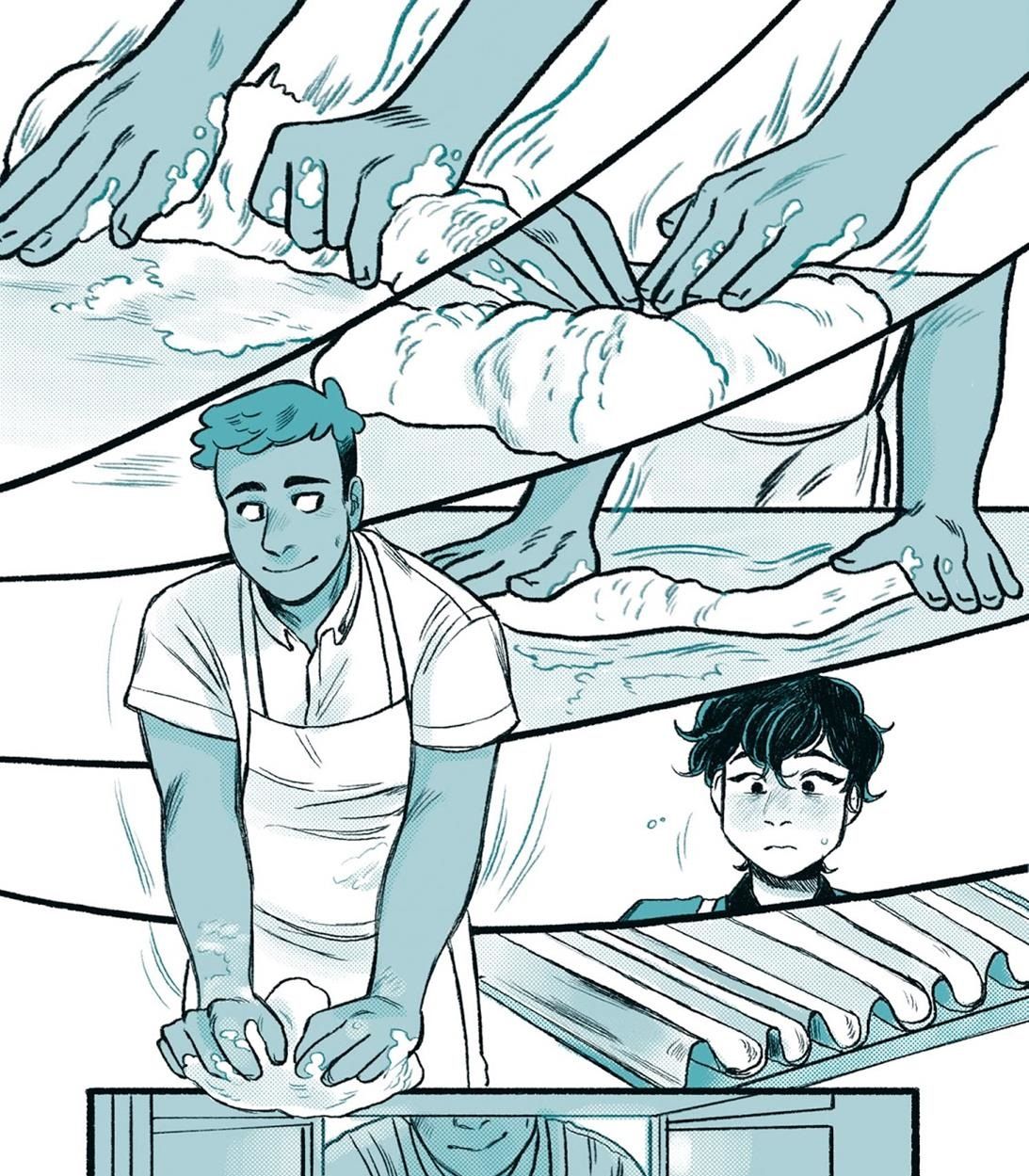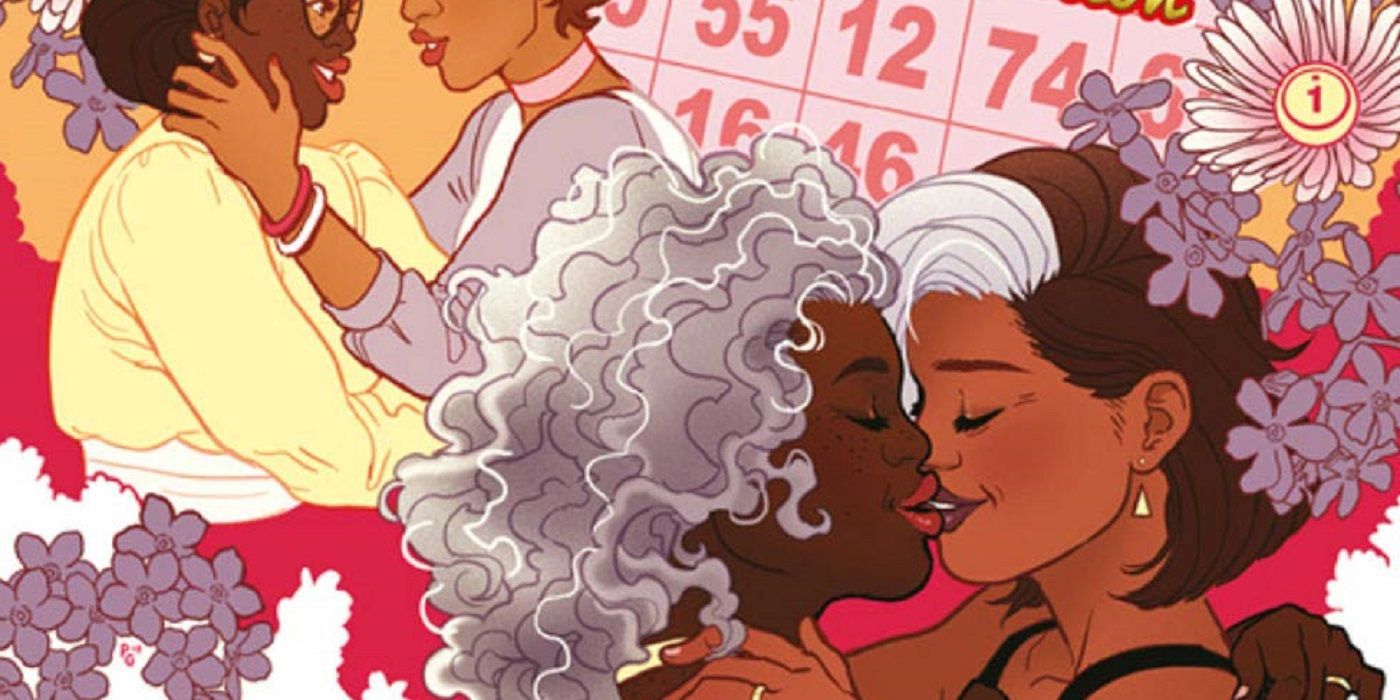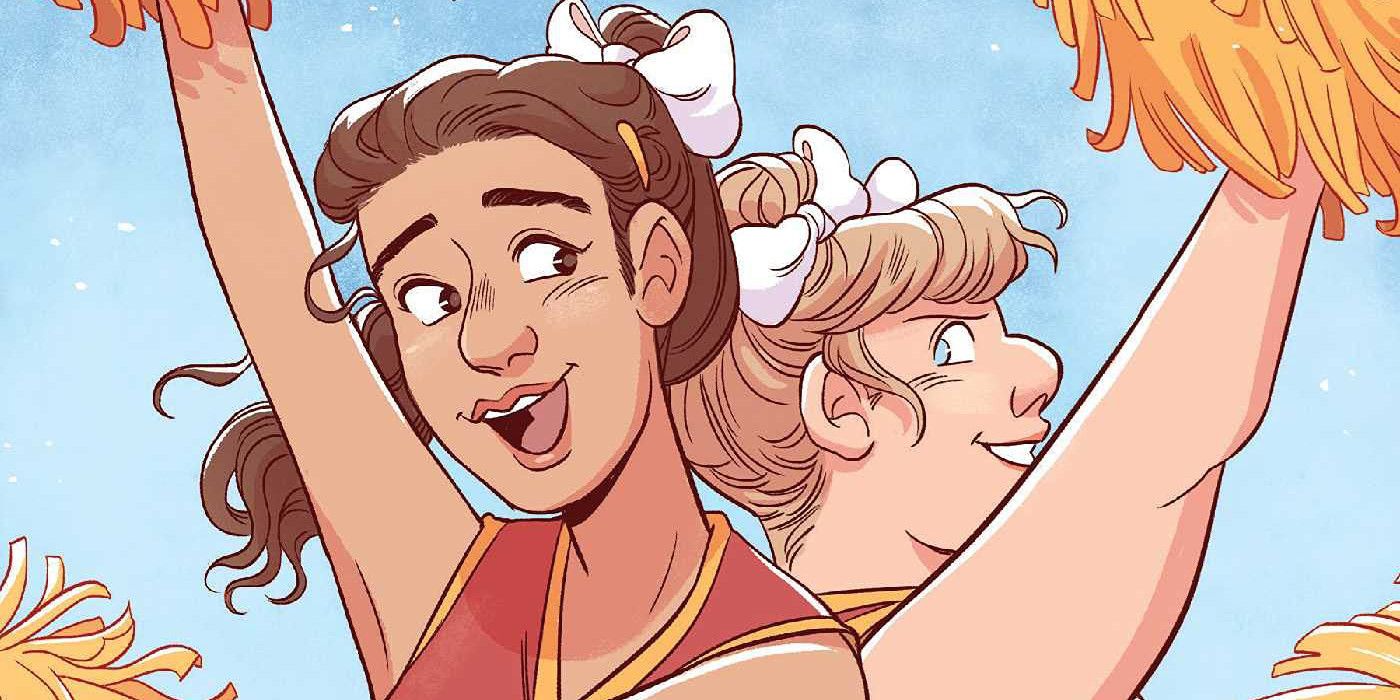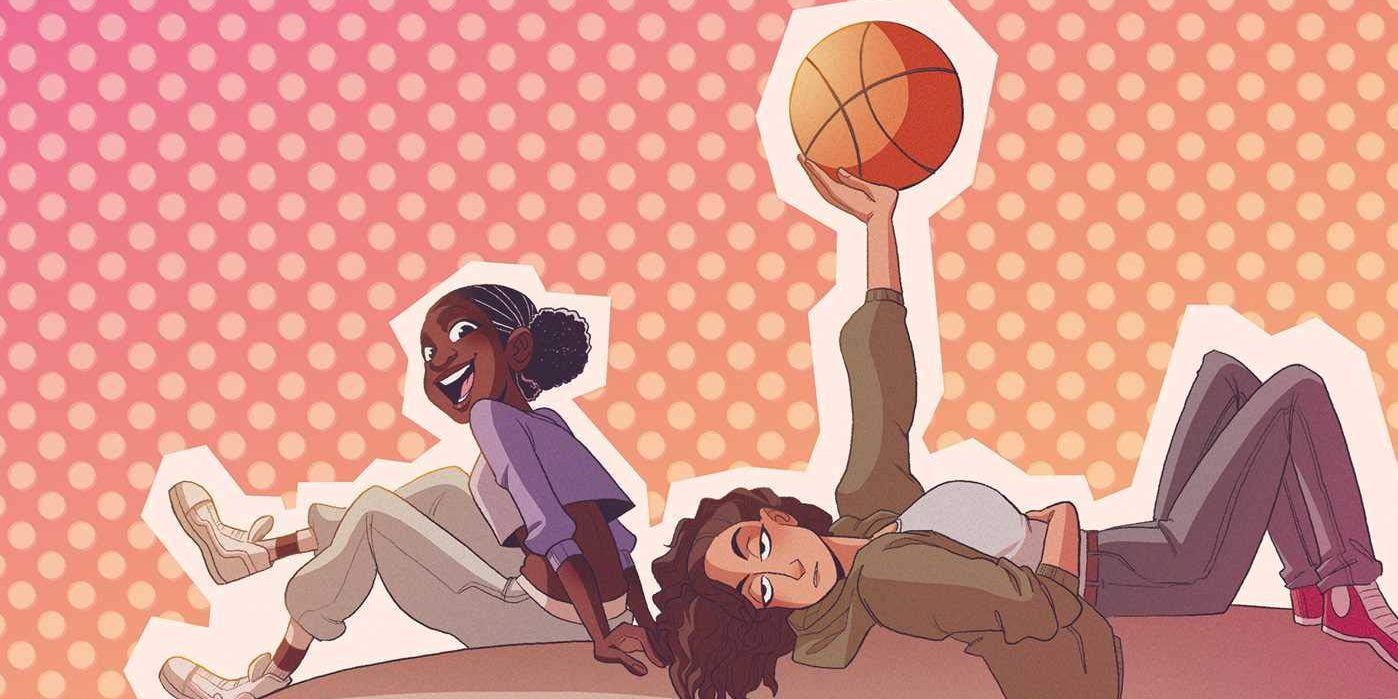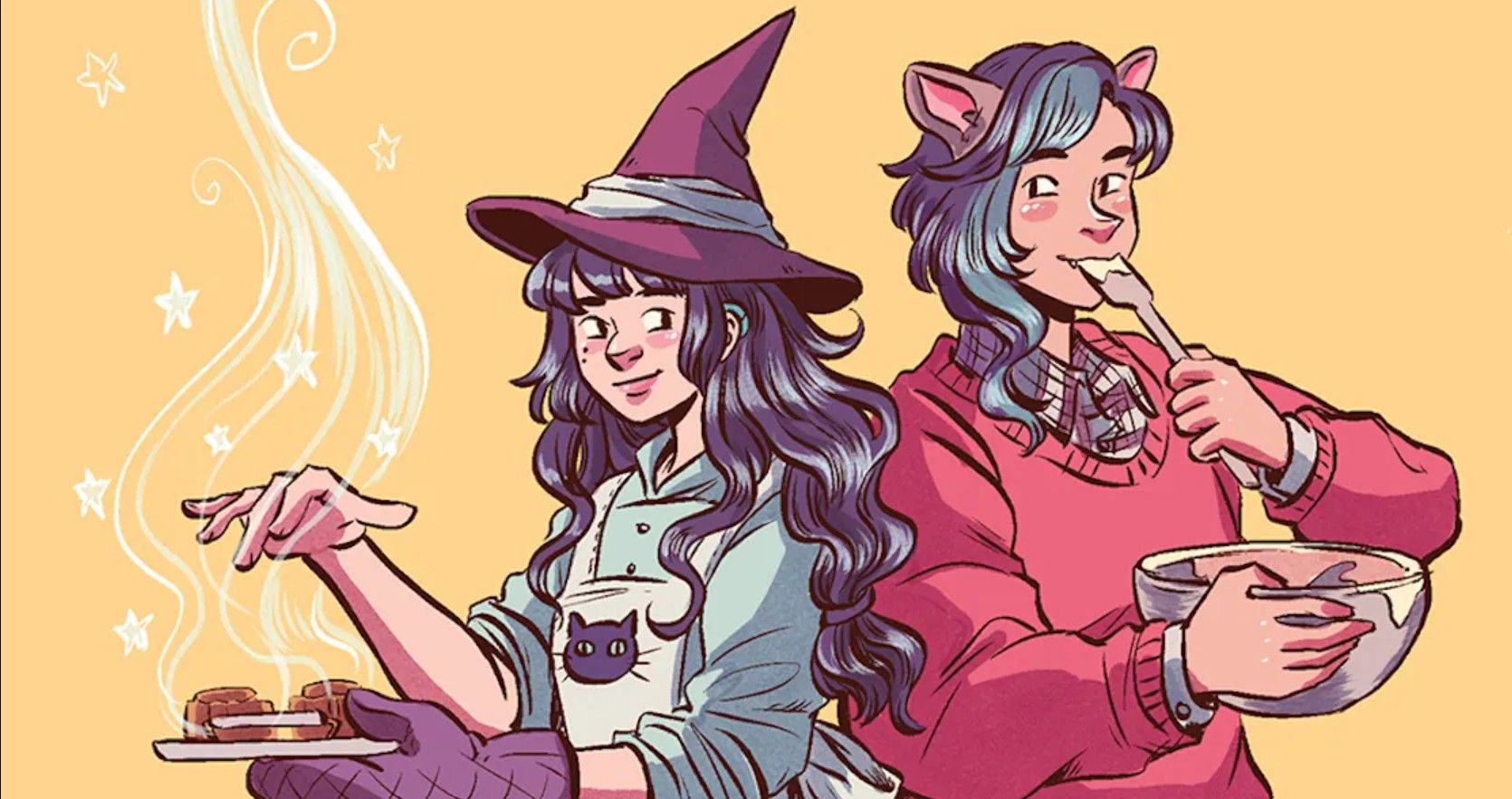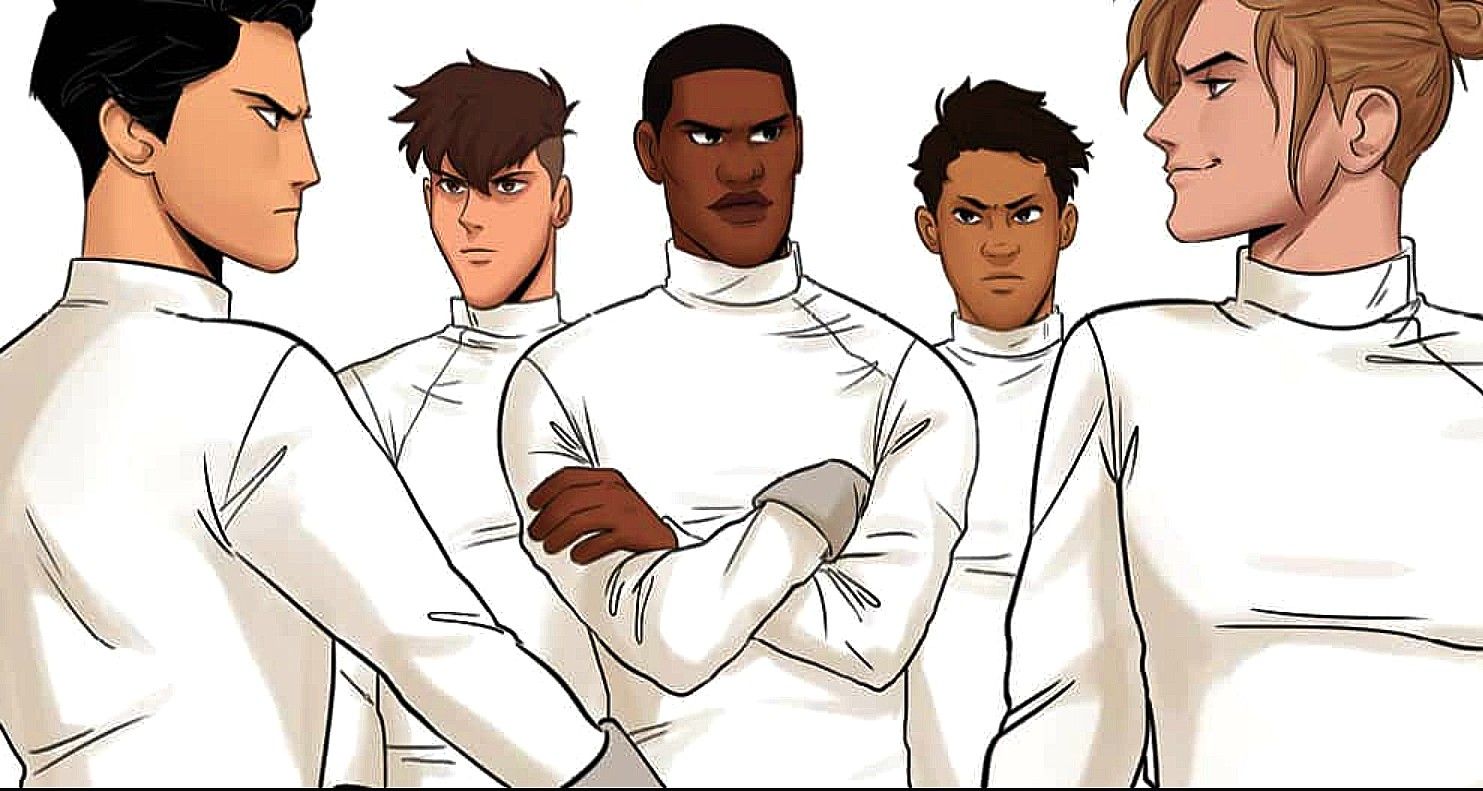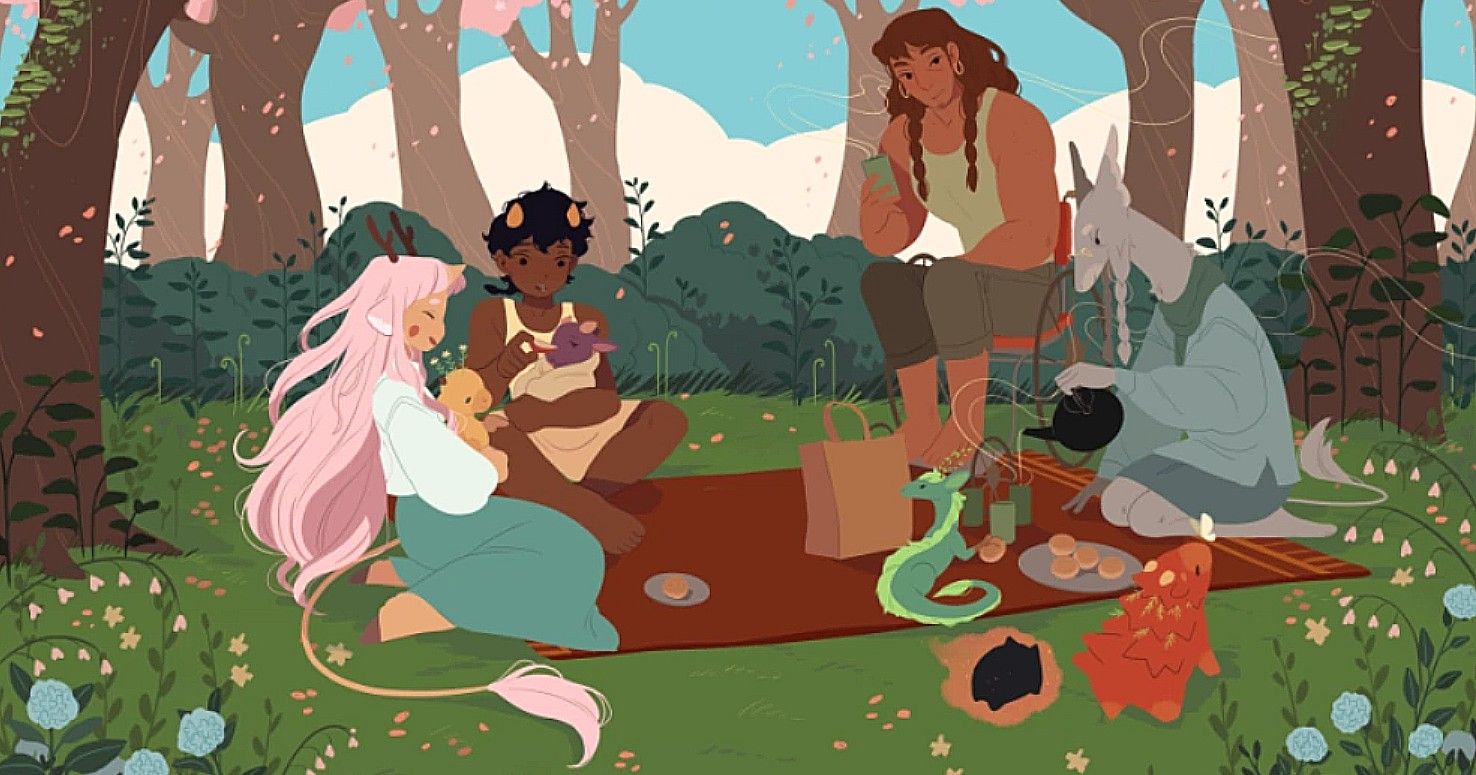Alice Oseman's boy-boy romance Heartstopper is well on the way to becoming a sensation, especially since its adaptation on the popular streaming service Netflix. The story tackles the theme of queer love as two teens, Nick and Charlie, come to terms with the realization that their unlikely friendship may actually be gravitating towards feelings of love. Fans cannot get enough of the adorable teenagers, and those hungry for more uplifting tales of queer teen love can turn to plenty of comics that celebrate love in all of its myraid forms.
Once a notably rare occurance in the world of comics, queer love stories are much easier to find these days in the medium. From black girls growing up in the 1960s to Samoan boys falling in love in Greek bakeries, queer comics orchestrate ensemble casts. Comics now exist that feature non-binary and transgender characters as writers have become more inclusive when it comes to the representation of the queer community. Here are a few comics that specifically focus on these type of stories in the form of not only romantic comedies, but also fantastical stories as well.
Bloom Is Baking Boy-Boy Romance
Bloom (by Kevin Panetta and Savanna Ganucheau) is about young love, baking, and self-discovery. Ari wants to move to the city and start a rock band, but his father needs help with the family’s bakery. Through his search for a replacement, he finds Hector, a culinary student who adores making the Kyrkos family's famous sourdough rolls.
Ari finds more than love working next to his new hire. He discovers things about himself that lead to him reexamining his choices in life. This book employs a lot of the same rhetorical and artistic devices as Heartstopper, with a hearty dose of baking added in for good measure.
Bingo Love Is For More Than Senior Citizens
Readers searching for the same kind of innocent joy experienced throughout Charlie and Nick’s courting should be sure to give the series Bingo Love a chance. Originally a Kickstarter project by Tee Franklin (who has also written for DC Comics), the series was eventually published by Image Comics in 2018.
Created with Jenn St-Onge and Joy San, Franklin writes about 14-year-old Hazel meeting Mari while at church bingo with her grandmother. Hazel is instantly enamored and the two become best friends. Both stifle an attraction for the other in a social climate where religious notions about romantic love govern their behavior. The love story spans over sixty years and involves content about older adults, but the story is for all ages. Bingo Love has great potential to be adapted for a streaming series as the chemistry between Mari and Hazel is palpable and deserves a live-action platform.
Fans Root For Love And Laughter In Cheer Up: Love And Pompoms
A down-to-earth story, Cheer Up: Love and Pompoms (by Crystal Frasier, Val Wise and Oscar O. Jupiter) is immediately funny. This romantic comedy is about the feelings sparking between Annie and Bebe. The last thing 17-year-old Annie (an academic star and misanthrope) wants to become involved with is extracurricular activities. Becoming a flyer for the cheerleading squad to enhance her college application is a ridiculous notion, but this is exactly what her mother suggests.
Beatrice Diaz (“Bebe”) is athletic and the first transgender member of the Lady Cranes, but her grades are suffering. Bebe’s “wholesome princess type” personality foils the tough and stormy Annie, and Fraiser’s story includes characters facing personal prejudices and microaggressions that many young readers are sure to find instantly relatable.
Queer Love And Basketball Team Up In Avant Guards
In Avant Guards (by Carly Usdin and Noah Hayes), former varsity basketball player, Charlie Bravo transfers to the Georgia O’Keefe College of Arts and Subtle Dramatics “where everything is open to interpretation," and joins the school's struggling basketball team for which the series is named.
Charlie meets a diverse set of characters including non-binary Jay, budding pagan Tiffany, and enigmatic team captain, Liv. Avant Guards is a feel good story that highlights subjects like social anxiety and illustrates the power of friendship to heal the spirit.
Meet A Witch And A Werewolf As Darling As Nick And Charlie In Mooncakes
Fans looking for playful and otherwordly romance should check out Mooncakes (by Suzanne Walker and Wendy Xu). This comic follows the story of pansexual teen witch Nova Huang and Tam Lang who is a teenage non-binary werewolf. Rather than standing up to school bullies, Nova and Tam go up against an archdemon who lives in the neighborhood forest.
Mooncakes is a magic and mythology pastiche that pays homage to many beloved contemporaries such as Practical Magic, Harry Potter, and Sabrina The Teenage Witch. Walker puts great effort into inclusivity, writing Nova as hard of hearing and Tam as experiencing housing instability.
Rivalry And Romance Captivate In Fence
Just as Bloom makes baking an integral part of the story, Fence (by C.S. Pascat and Johanna the Mad) incorporates the sport of fencing into the fabric of the story it tells. The tale revolves primarily around the rivalry of roomates Nicholas Cox and Seiji Katayama at a prestigious boy's school. The plot centers around issues of classism with Nicholas lacking the resources and affluency of his classmates.
This comic teems with sports anime tropes and focuses on flirtations among young gay boys. Bobby Rodriguez is one of the most endearing characters, identifying with he/him pronouns while wearing skirts and dressing his hair in ribbons. Fence sets up a compelling plot about competitive fencing tournaments reminiscent of the contests featured in The Karate Kid, and the characters are as dynamic and engaging as the story.
The Tea Dragon Society is Best Described as a Queer Version of Oz
The Eisner-winning The Tea Dragon Society (by K. O'Neill) was originally a webcomic like Heartstopper. The story follows Greta, a blacksmith's apprentice, as she discovers the art of caring for dragons that sprout tea leaves from their horns.
In a world filled with ambiguity, the magical creatures of O'Neill's universe resist taxonomy. Diversity is the norm in Greta's society, and it features a queer relationship between the bipedal Hesekial and a swordsman named Erik. Many of the characters in this tale are of questionable fantasy origins, such as Minette who would appear human if not for the large horn protruding from her forehead. The artwork is beautifully whimsical, and the story is as delightful as an old fairytale.

